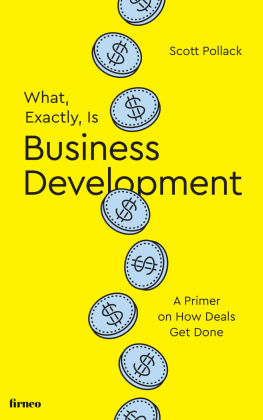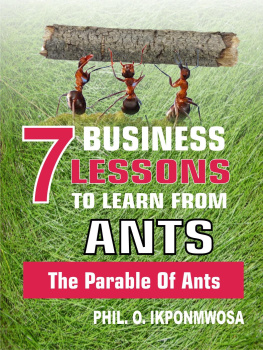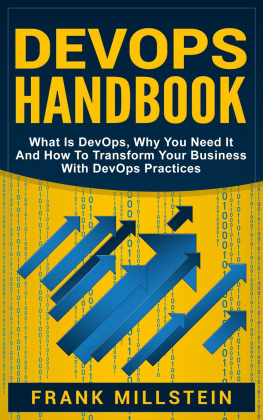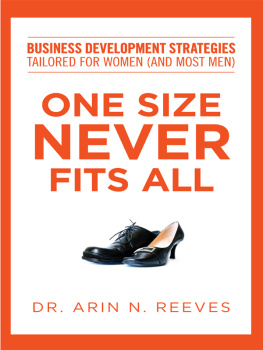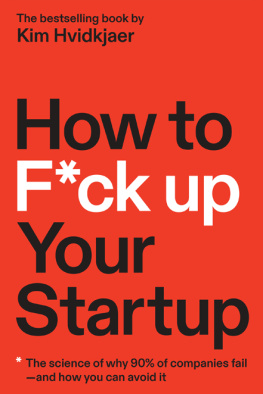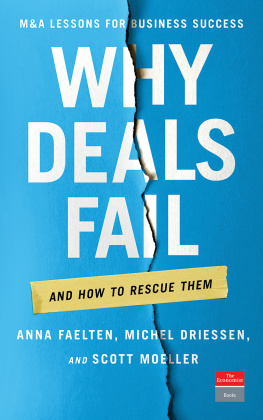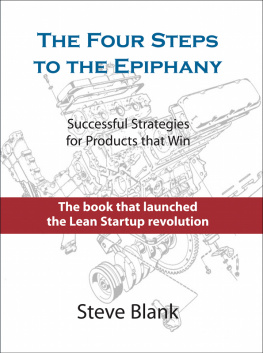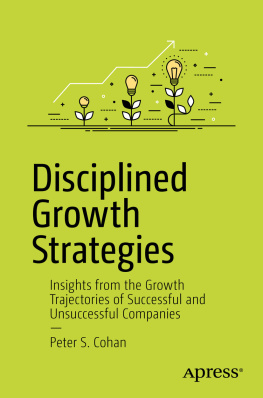My name is Scott Pollack, and for the past 15 years, I've worked in business development. What do I even mean when I say that? What exactly is business development? ... That's what this book is all about.
This book is not just business development for startups, or business development for large companies. It's about business development for everyone. This book is all about explaining how business development is done at companies of all sizes, so that you can apply that understanding to your company.
I've been in your shoes before. I've been in the trenches at startups, I've run my own company, and I've done deals for startups like WeWork and big companies like American Express. I know what it's like to be overwhelmed with ideas for how you can develop your business. How do you actually generate sales? How do you create partnerships? How do you build relationships that will create long-term opportunities?
In addition to working in business development, I've also taught it to thousands of students around the country at corporate workshops, startup accelerators, and top business schools like Harvard, Wharton, Babson, and NYU. I've taught thousands of students about business development, and given them the tools to build a career in business development. Using the same concepts that are in this book, I've shown them how to pursue the right growth opportunities that will help them scale their companies.
This book will help demystify and clarify the inner workings of business development. My goal is to give you a system for thinking about business development, helping to put your career on the right track.
To really dig deeply into this topic, it's important that we start by being on the same page. We're going to define what business development is, why it matters, and how it works. We're also going to talk about the skills that are necessary for business development people to do a good job. And we're also going to talk about what the day job of business development actually is the core job functions at companies of all sizes.
Next, we're going to talk about the big-picture strategies of business development. What are the ways that you can be thinking about growth opportunities strategically, helping to ensure that you're always focusing on the right ones?
Finally, we're going to talk about the tactics of business development. What are the actual steps that you need to take to get in the door? What actions do you need to take to land partnership deals and win sales, regardless of the size of your company?
Chapter 1: Defining Business Development .
How do you define business development? Maybe you think of it in terms of sales, partnerships, or new lines of business. Perhaps you see it in terms of growth, or new revenue streams.
Here's the thing: All of those sound correct. Depending on the context, any of them could be an accurate description of a specific business development job. There is no single, universally accepted definition. In fact, if you look in almost any dictionary for the term "business development," it is literally undefined.
That's the challenge with business development. There are many disparate ways to talk about the idea of business development, but no single, clearly defined definition that we can all agree on. Unless we're all on the same page on what business development is, how can we have a serious discussion about how to do it better?
To help me gain a better understanding of what business development really is, I've spent thousands of hours talking with business experts, entrepreneurs, CEOs and presidents of Fortune 500 firms, as well as people on the front lines of startups and companies of all sizes. Each conversation gave me a new perspective, helping me to consolidate those disparate views into a single definition that reconciles all those different ways of thinking about the term.
Here it is:
Business Development is creating long-term value for an organization from customers, markets, and relationships.
Let's take a look at that definition in more detail.
The concept of value is a good place to start. Business development is all about creating opportunities to pursue value. What exactly is value, and how can we start to think about the value of opportunities?
What Is Value?
Value is inherently subjective. Something that is highly valuable to one person like rare stamps or vintage LPs might not be valuable at all to someone else. To a collector, a rare book might be worth thousands, while to another it's just some old relic gathering dust on a shelf.
Value also isn't static. What's valuable to me today might not be valuable to me tomorrow. People will trample each other to buy the last remaining popular kids' toy on Christmas Eve, even if they know that the shelves will be stocked with them a week after New Years Eve. Before we can discuss the role that value plays in business development, we need to define the concept of value in a new way.
Think about the things that you personally value. You may value money, but chances are that you place an even greater value on the things that money allows you to do. Perhaps you value time with your family and friends. You may value the lifestyle you've created for yourself, the career you've built, the financial security you've worked for, or even your health.
Which of these represent "real" value? All of them. Value means something different to everyone.
The same is true for businesses. While every company wants to make money, each one has a unique perspective on what they value, and money may only be one of those things. Each business will see value in different terms. When you're thinking about opportunities from a business development standpoint, it's important to remember that every opportunity might create a different type of value.
Value wears many different hats, takes many shapes, and has many different faces. Let's take a look at some of the most important kinds of value for business development.
Economic Value
The most fundamental way that we think about value in the context of business is economic value. For instance, "Does it make me money?" Economic value is generally discussed in terms of revenue and profit.
It is completely fair to talk about the job of business development in terms of economic value. Things that generate profit and revenue are often great ways to generate long-term value for an organization. It's just as important to understand, however, that economic value is not the only form of value. There are other kinds of value that are just as important from an business development perspective.
Brand Value
Brand value is the overall benefit of changing the perception of the company in the eyes of our partners, customers, and prospective customers. One of the most valuable things a company can have is a strong brand identity, yet relatively few people think of the brand itself as a form of value.
To illustrate this point, let's talk about one of the best-known brands on the planet: Coca-Cola. Every year, Coca-Cola spends billions of dollars on marketing and advertisements. The goal behind all that spending isn't just to get people to buy more cans of soda, it's also to get you to associate their brand with everything and everything so that you are always thinking about Coke.
Generating brand value may not directly increase revenue, and in the short-term there may even be a non-revenue goal behind the branding push. This indirect approach may seem like circuitous path to increased revenue, but the ultimate goal is the same: Making money for the company.

